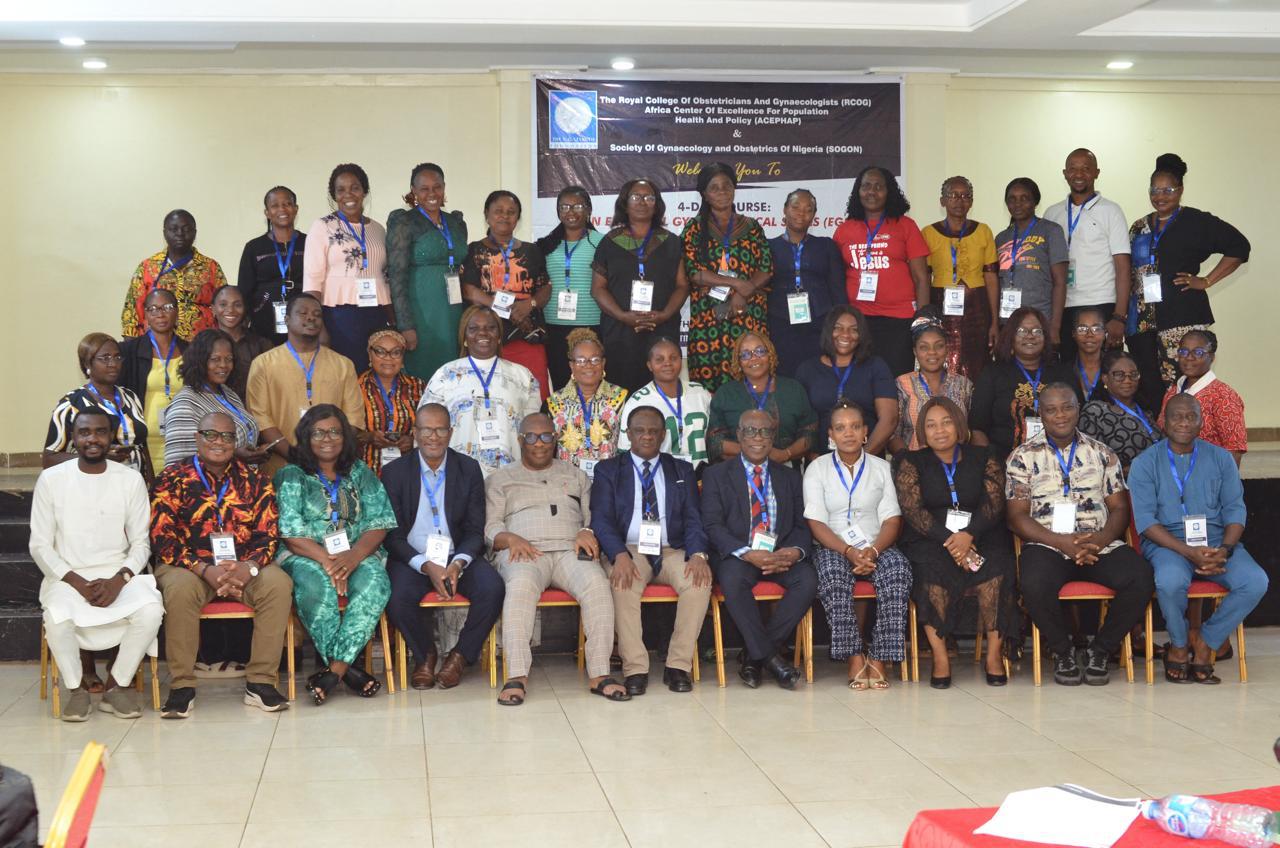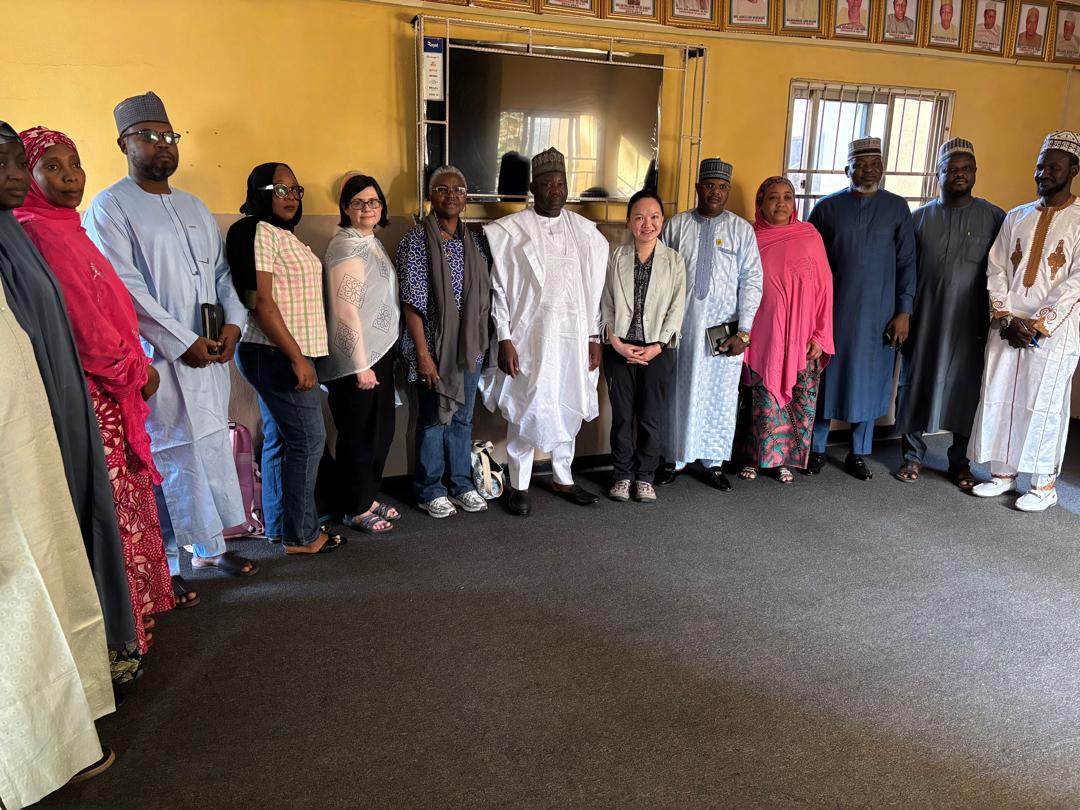Translating Research Findings into Practice
As if responding to President Buhari’s challenge to the academia in his address at BUK’s 35th Convocation ceremony, Africa Centre of Excellence for Population Health and Policy (ACEPHAP), Bayero University, Kano is determined to revolutionise not only the conduct of cutting edge researches, but also to lead in translating research findings into practice and policies. To achieve this, the Centre organised a 5-day PRIME partners Research Capacity Workshop aimed at training and improving not only the research capacity of the centre’s partners, but also on the strategy of implementing research outcomes. Bala G. Abdullahi reports.
From all indications the Africa Centre of Excellence for Population Health and Policy (ACEPHAP), Bayero University, Kano appears to have accepted the challenge posed to university academics by President Muhammadu Buhari in which he challenged them to transform themselves into change agents and conduct cutting edge research (both theoretical and policy oriented applied researches) and then collaborate with government and industries in order to implement the outcomes. The President's challenge was contained in his address at the 35th Convocation ceremony of Bayero University, Kano which took place on Monday 10th June, 2019. He acknowledges the fact that most of the advancement recorded by the developed countries of the world was a result of the implementation of research outcomes that are conducted in universities and research institutes. But why is it that in Africa, the reverse is always the case when it comes to implementation of research findings, one may want to ask?
The incontrovertible fact is that most researches that are carried out in universities across most African countries, Nigeria inclusive, have their findings not always translated into practice. For this reason, a lot of the outputs of such researches, no matter their relevance to the socio-economic development of humanity, often end up on library shelves. This lack of academy/industry synergy has contributed substantially to the backwardness of most countries in the continent of Africa. It is this negative tendency that Mr. President wants reversed. That was why he assures that the government will continue to strive to provide the requisite funding and other resource input that will enable universities conduct cutting edge research and possibly collaborate with government and industries in order to implement the outcomes. He believes that achieving this great feat by the academics would no doubt help the nation to find solutions to the numerous developmental challenges of Nigeria.
As if responding to Mr. President’s sermon, the Africa Centre of Excellence for Population Health and Policy (ACEPHAP), Bayero University, Kano seemed to have taken up the challenge. This is because; it is all out to revolutionise the situation. Part of the research plans of the centre, according to its Director, Professor Hadiza Galadanci, at a recent Research Workshop, is to adopt a strategy of translating all its research outputs into practice as well as to recommend to policy makers for implementation purposes, as a process of Translating Research into Policy or ‘(TRIP)’ for evidence-proven interventions.
To set the ball rolling and in its determined commitment to actualize its dream, the Centre in collaboration with senior academics and researchers from Sheffield University, United Kingdom, and Babcock University, Ilesha, Nigeria, met at the ACEPHAP’s headquarters located at the Aminu Kano Teaching Hospital, (AKTH) to share knowledge during a 5-day PRIME Partners Research Capacity Workshop. The workshop which took place from Monday, 1st to Friday, 5th July, 2019, was aimed at training and improving the research capacity of faculty members of Bayero University, Kano, from 7 Departments of Paediatrics, Community Medicine, Public Health, Nursing, Psychiatry, Biochemistry and Obstetrics and Gynaecology, all partnering with ACEPHAP to achieve the core mandate of the Centre i.e. improving population health through postgraduate training and the conduct of cutting edge research and most importantly translating such research findings into policies and practice, all geared towards attaining sustainable development.
It should be noted that the core objectives of the Centre are: to train postgraduate students to acquire knowledge, skills and competence towards achieving health-related SDG’s, to promote and enable gender parity and participation in population health research and policy, to increase human resources for nursing in West and Central Africa, and most importantly to strengthen capacity and capability of translating research findings into policies and practice. The research capacity building workshop, therefore was geared towards training and improving the research capacity of members of the academics from 7 Departments in Bayero University which are partnering with ACEPHAP as well as to educate them on translating research findings into policy and practice to achieve sustainable development, which are in tandem with the centre’s mandate.
The unanswered question which continues to agitate the minds of members of the public are: what are these Health-Related SDG’s and sustainable development that the Centre is all out to achieve through cutting edge research and translating its outputs into practice? The Director of ACEPHAP, Professor Hadiza Galadanci cleared the air in her opening address at the workshop. She informed the participants that the PRIME partners Research Capacity Workshop was aimed at achieving two things. First it would afford the Centre’s partners the opportunity of interacting with each other and also get to know each other better. Secondly, experts would present papers on different aspects of research to improve the research capacity of the participants.
Apart from the visiting academics from Sheffield University, United Kingdom and Babcock University, Ilesha, the Director disclosed that there were participants from 7 collaborating Departments of the Centre, (Paediatrics, Community Medicine, Public Health, Nursing, Psychiatry, Biochemistry and Obstetrics and Gynaecology) all from Bayero University.
As if attempting to answer the earlier question, Professor Galadanci said ACEPHAP was set to address health concerns of Sustainable Development Goals (SDGs 3) which, according to her, are; promoting good nutrition in pregnant women and children, reducing maternal mortality, reducing child mortality and reducing maternal and child infectious diseases (malaria, Tuberculosis and HIV) with particular emphasis on increasing human resources for health and Turning Research into Practice (TRP). The Centre, she further stated, would embark on aggressive marketing and outreach in the West and Central African sub-region to attract regional potential students.
Professor Galadanci who released some startling statistics explained that MDG 5 showed that 289,000 maternal deaths were recorded globally, with Sub-Saharan Africa (SSA) accounting for 64% (179,000). Going into specifics, the erudite scholar revealed that Sierra Leone is estimated to have the highest Maternal Mortality Rate (MMR) in the world at 1100/100,000 Live Birth (BL) with Nigeria contributing 14% of Global maternal deaths.
On the other hand, child mortality ranges from 68/1000 in Guinea Bissau to 105 in Nigeria and 179 in Gambia, while anaemia in Sub-Saharan Africa ranges between 42% in Swaziland to 91% in Burkina Faso. She said stunting is highest in Burundi, (57.7%), followed by Malawi, (47.1%), Niger, (43.9%), Mali, (38.3%), Sierra Leone (37.9%) and Nigeria, (36.8%) in West Africa. She expressed concern that Africa accounts for a quarter of all new tuberculosis (TB) cases worldwide (2.5 million people in 2016). Likewise, 70% of the global burden of HIV and 90% of all malaria deaths worldwide are domiciled in Sub-Saharan Africa.
Professor Galadanci told the participants that the Centre was proposing to run some postgraduate programmes in the 2020/2021 academic session.
She mentioned the programmes which include: M.Sc. in Public Health Nutrition and Policy, M.Sc. in Global Health and Policy, M.Sc. in Maternal and Child Health Policy, M.Sc.in Public Mental Health and Policy, M.Sc. in Public Health Nursing, and M.Sc. in Nursing Education. She also said the Centre was proposing to run five PhD programmes in Public Health Nutrition and Policy, Global Health and Policy, Maternal and Child Health Policy, Public Mental Health and Policy, Public Health Nursing and Policy and Nursing Education.
Professor Galadanci also revealed some of the Centre’s other plans, saying that it would embark on aggressive marketing and outreach in the West and Central African sub-region to attract regional potential students. It would also conduct short courses in collaboration with other departments and partners aimed at filling identified knowledge and research gaps in related thematic areas. The Centre has also planned to create internship opportunities for students to improve their skills in their areas of study and thereby enhance employment opportunities.
On Research Plans, she said the Center would adopt a strategy of translating all its research outputs into policies as well as recommend to policy makers for implementation purposes as a process of Translating Research to Policy or ‘TRIP’ for evidence-proven interventions. ‘We shall be holistic and multidisciplinary considering the need to highlight the role of communities, health facilities and district level policies, mass media, civil society and non-governmental organisations and the local and national parliamentarians in achieving the health-related SDGs.’ She assured the participants that ACEPHAP was really positioned to be a leader in training and research in population health and policy in Nigeria and hopefully in West Africa.
The visiting Academics from Sheffield University, United Kingdom were taken on a tour of some of the University’ Laboratory facilities at the Biotechnology laboratory. Two other laboratories were also visited – General laboratory and Molecular Laboratory all located at the Centre for Biotechnology Research, Old Campus. The visitors were conducted round by Malam Aliyu Abba, the Chief Technologist and his colleague, Malam Shamsudeen Lekan.
Commenting on the facilities, Dr. Khondoker Akram, Sheffield Postdoctoral Research Associate who is the Scientist that carried out many laboratory research works, expressed satisfaction with what he saw on ground. He said by the time the research work starts fully, the standard facilities at the molecular laboratory would be highly useful in the conduct of cutting edge research. Dr. Khondoker assured the ACEPHAP Director of Sheffield University’s commitment in its desire to excel in research as well as in translating research findings into policies and practice.
A total of 16 papers on different aspects of research were presented by the resource persons drawn from Sheffield University, United Kingdom, Babcock University, Ilisha and Bayero University, Kano. Some of the papers presented include: Introduction to Research Prioritisation, Developing Innovative Research Question, Essentials of a Well Written Grant Application, Research Ethics, Conducting Literature Review and Introduction to Laboratory Research, among others.
Among the participants were Professor Dilly O.C. Anumba, Dr. Khondoker Akram, Shomona Salam and Gertrude N. Nyaaba all from Sheffield University; and Mrs. Alao Adekemi from Babcock University. From the ACEPHAP team were Professor Hadiza Galadanci, Director of the Centre, Dr. Ibrahim Nashabaru, Deputy Director, Training; Dr. Taiwo Amole, Deputy Director, Research and Dr. Salisu Maiwada Abubakar, Deputy Director, Linkages and Research, and the Centre’s Communication Officer, Malam Bala G. Abdullahi as well as Administrative Secretary of the Centre, Alhaji Ali Yakasai. The rest were; 20 other participants drawn from the 7 Departments of Paediatrics, Community Medicine, Public Health, Nursing, Psychiatry, Biochemistry and Obstetrics and Gynaecology.
Bala G. Abdullahi writes from the Directorate of Public Affairs. He is also the Communication Officer of ACEPHAP
- Log in to post comments



